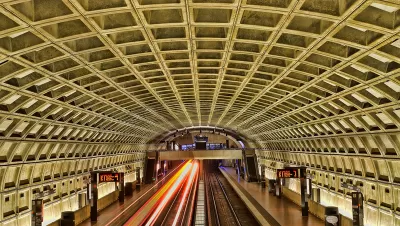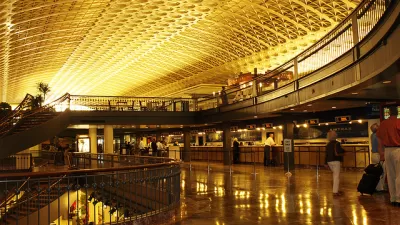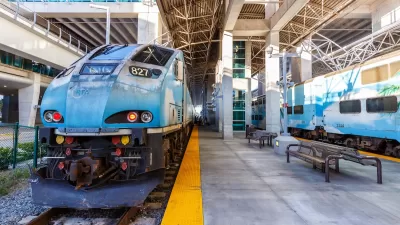The region's transit providers are gearing up to provide enhanced service, shorter headways, and reduced or free fares as more people return to public transportation.

Washington, D.C.'s regional transit agencies are working to resume and improve service as workers start returning to their pre-pandemic commutes. As reported by Luz Lazo, "[m]ost transit systems in the region are transitioning to normal operations after reducing service 16 months ago at the onset of the pandemic. Some are adjusting or restructuring routes, while others are adding amenities and cutting the cost of riding."
Ridership in the region "has started to bounce back, although it hasn’t returned to where it was pre-pandemic. Local bus systems are still 50 to 70 percent below previous levels, according to transit officials, while Maryland and Virginia commuter trains are largely empty — down by about 85 percent."
D.C. Metro "is rolling out service improvements for bus and rail users, as well as a reduction in fares this fall. Beginning in September, weekend rides on Metrorail will be a flat $2, a $1.50 transfer fee between rail and bus will be lifted and the price of a seven-day regional bus pass will drop by $3 to $12." The agency also plans to increase frequencies on their most popular train lines, expand operating hours, and restore or increase bus service on 46 routes.
Maryland's MARC trains and commuter buses will also bring back full service and allow cyclists to bring their bikes on trains in order to expand first-mile/last-mile options, while the popular downtown D.C. Circulator will be free "at least through Sept. 30."
The article details the changes planned by several other transit systems in the area as they gear up to resume full service, reducing or eliminating fares, and expanding frequency and service areas.
FULL STORY: Planning a return to the office? The D.C. area’s transit systems want to get you there.

Planetizen Federal Action Tracker
A weekly monitor of how Trump’s orders and actions are impacting planners and planning in America.

Maui's Vacation Rental Debate Turns Ugly
Verbal attacks, misinformation campaigns and fistfights plague a high-stakes debate to convert thousands of vacation rentals into long-term housing.

San Francisco Suspends Traffic Calming Amidst Record Deaths
Citing “a challenging fiscal landscape,” the city will cease the program on the heels of 42 traffic deaths, including 24 pedestrians.

Amtrak Rolls Out New Orleans to Alabama “Mardi Gras” Train
The new service will operate morning and evening departures between Mobile and New Orleans.

The Subversive Car-Free Guide to Trump's Great American Road Trip
Car-free ways to access Chicagoland’s best tourist attractions.

San Antonio and Austin are Fusing Into one Massive Megaregion
The region spanning the two central Texas cities is growing fast, posing challenges for local infrastructure and water supplies.
Urban Design for Planners 1: Software Tools
This six-course series explores essential urban design concepts using open source software and equips planners with the tools they need to participate fully in the urban design process.
Planning for Universal Design
Learn the tools for implementing Universal Design in planning regulations.
Heyer Gruel & Associates PA
JM Goldson LLC
Custer County Colorado
City of Camden Redevelopment Agency
City of Astoria
Transportation Research & Education Center (TREC) at Portland State University
Jefferson Parish Government
Camden Redevelopment Agency
City of Claremont





























